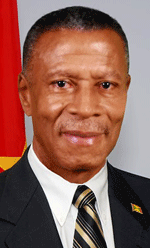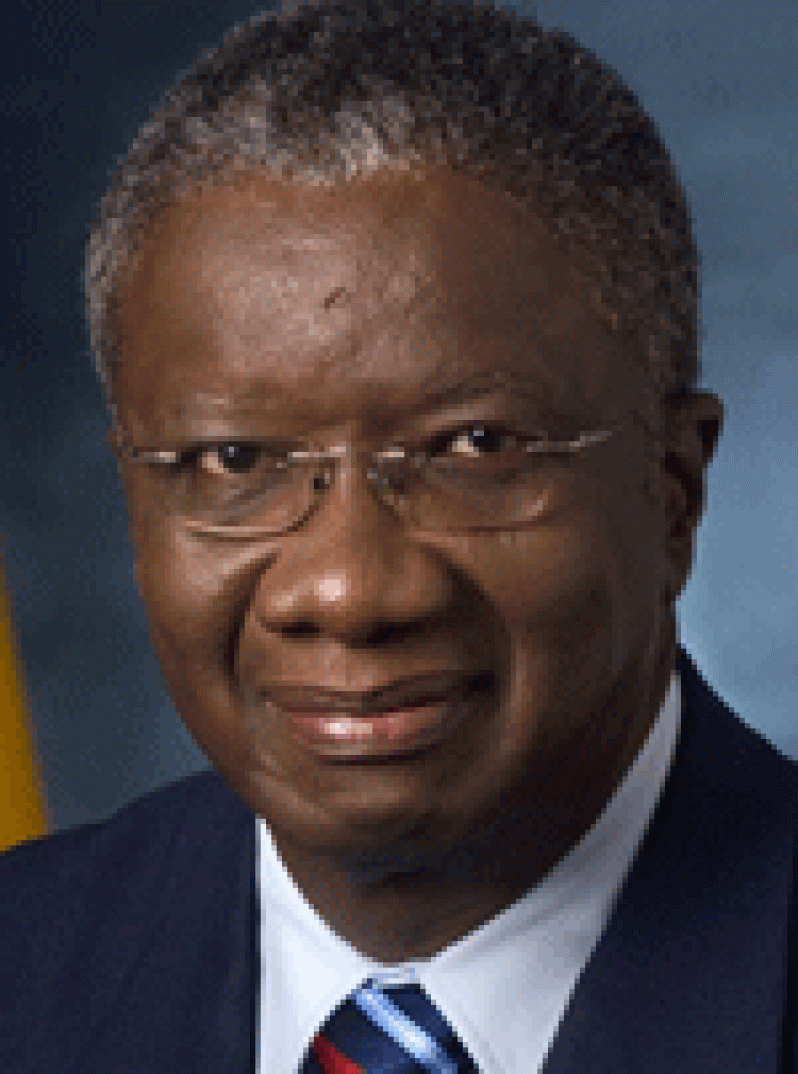— leadership challenges for two PMs
Analysis by Rickey Singh
AMID continuing reports of leadership problems being faced by the administrations of Prime Minister Freuendel Stuart in Bridgetown and Prime Minister Tillman Thomas in St. George’s, there are increasing speculations that both Barbados and Grenada are heading for one-term governments at new general elections within a year. Last Thursday evening, Prime Minister Thomas felt compelled to make a live national broadcast to reassure the Grenadian people that despite the reported divisions within his National Democratic Congress (NDC), “the good news is that my government is intact, and working harder than ever to deliver on our commitments…”
National Democratic Congress (NDC), “the good news is that my government is intact, and working harder than ever to deliver on our commitments…”
But if such an assurance was not like whistling in the dark for comfort, then the Grenadian Prime Minister must be credited for his capacity to show confidence, in the face of widening problems that threaten his leadership at both the level of the NDC and his four-year-old first-term government.
Across in Barbados, where Prime Minister Stuart is heading his first ever government as a result of the unexpected sudden passing of David Thompson, who had led the DLP to a landslide victory back in January 2008, informed commentators, across the political divide, are reluctant to forecast, with any confidence, the party’s retention of power at the next parliamentary election.
It is generally known that Barbados and Grenada are internationally recognised as popular tourist resorts, and committed to the primary objectives of the Caribbean Community. What may not be widely known at this time, beyond their borders, is the common leadership problems they face.
Within six months of each other in 2008, the DLP and the NDC were swept to power with decisive parliamentary majorities — the former with a 20-10 advantage, while the latter secured State power for the first time since 1995 by an 11-four victory, with Thomas at the helm.
New elections
New elections are due in Barbados not later than the first quarter of 2013, with senior counsel Stuart as Prime Minister and DLP leader, and in Grenada not later than September next year, under the watch of NDC’s Thomas, a lawyer by profession.
Amid growing speculations of likely snap polls, both Stuart and Thomas are faced with internal leadership problems that often manifest themselves with Cabinet colleagues now openly revealing positions that conflict with those of the respective Head of Government, but with the Grenadian Prime Minister evidently in a worst-case scenario.
Thomas had made his entry in governance politics as the elected leader of the NDC after a gruelling bout in the opposition. For his part, Stuart was endorsed, by majority vote, by the DLP’s parliamentary group to replace the late Thompson—in preference to the charismatic Finance Minister, Chris Sinckler.
Subsequently ratified as such by the party’s executive committee, he was, more significantly, a relatively cool choice for continued leadership at the ‘Dems’ annual convention last August.
The next convention before a new general election is scheduled for this coming August, and it is doubtful that the ‘Dems’ would risk taking so-called ‘dirty linen’ to that crucial forum within months of a new general election, in the face of a reunited and seemingly re-energised Barbados Labour Party, under the leadership of Owen Arthur, a three-time Prime Minister.
‘No-confidence’ motion
In sharp contrast, Prime Minister Thomas is now facing a “no- confidence” motion in parliament later this month, filed by Opposition Leader and former Prime Minister Dr Keith Mitchell. While even some of Thomas’s known dissenting parliamentary colleagues could, as expected, deny the NNP such a “victory” and avoid a snap poll, what seems quite threatening for the Prime Minister is the likelihood of a no-confidence vote against his leadership at the NDC’s annual convention, scheduled for this July.
Leading the open and quite bruising battle against Thomas’s leadership — in comparison to the political meanderings and indirect swipes at Stuart’s leadership by a few senior party and cabinet colleagues — is the flamboyant and quite influential General Secretary of the NDC, Peter David.
He tendered his resignation early last week to the Prime Minister as Tourism Minister, and is reputed to have decisive majority support on the party’s executive council.
Real and assumed differences apart about the degree of the internal leadership problems/challenges Stuart and Thomas are facing, what is now very much in the public domain is that both the governing DLP and NDC have quite difficult challenges to contend with ahead of their respective annual party convention prior to, a few months later, new general elections, with the opposition parties very much on the offensive for the return to State power.
Contrasting moods
While Stuart continues to downplay signals and suggestions emanating from among parliamentary and cabinet colleagues of more than leadership rumblings, across in Grenada, Thomas may well be fighting against the most threatening internal problems the NDC has had to contend with under his watch.
Yet, projecting confidence in his broadcast address, he announced Dr George Vincent as successor to Peter David as new Minister of Tourism, Civil Aviation and Culture, and assured the populace that “my government remains strong and we remain focused…”
Well, in party politics in multi-party parliamentary democracies, all things are possible—including one-term government surprises. Ask, for instance, the Jamaica Labour Party (JLP) that was humiliatingly defeated last December by the People’s National Party (PNP) without completing its first full-term.
The governing parties in Barbados and Grenada will be fervently hoping to avoid such a fate.




.jpg)










